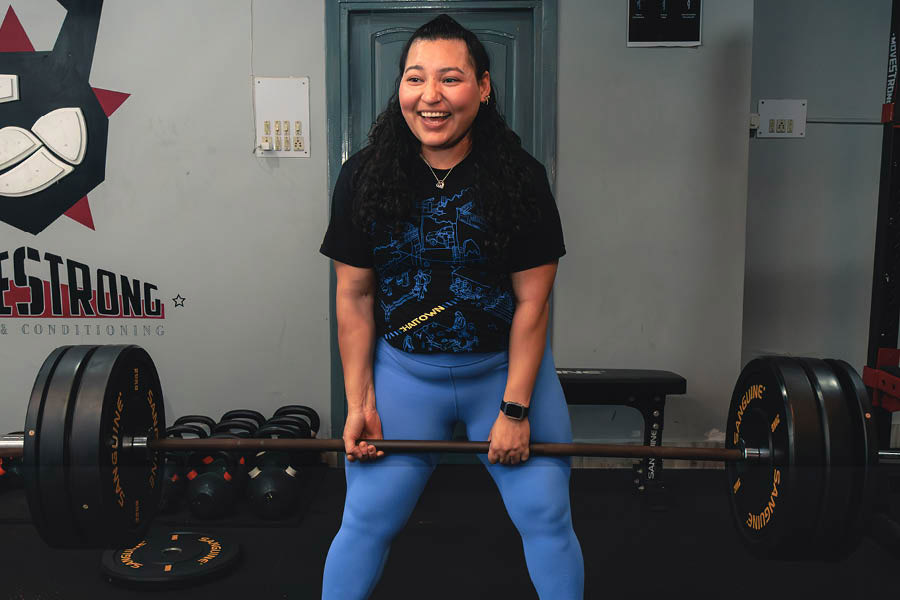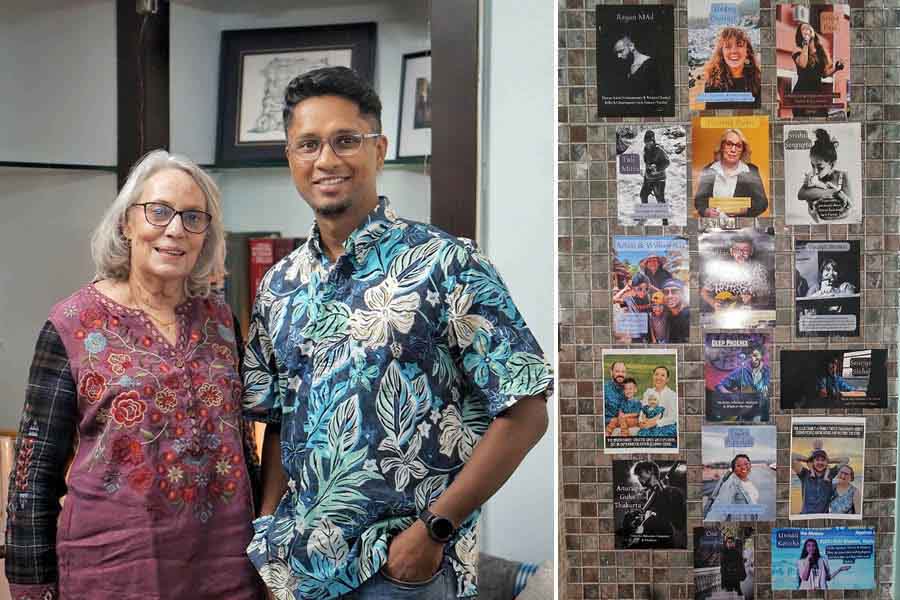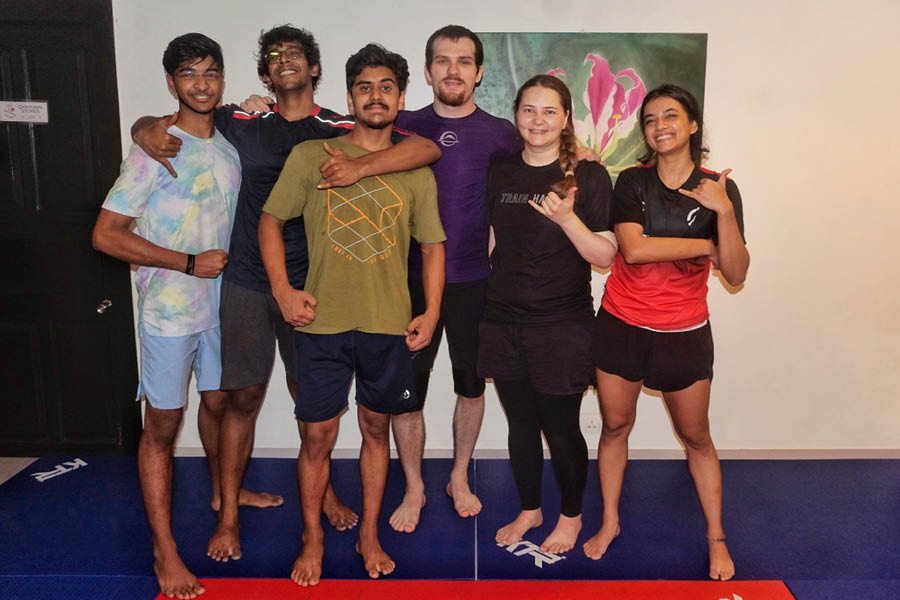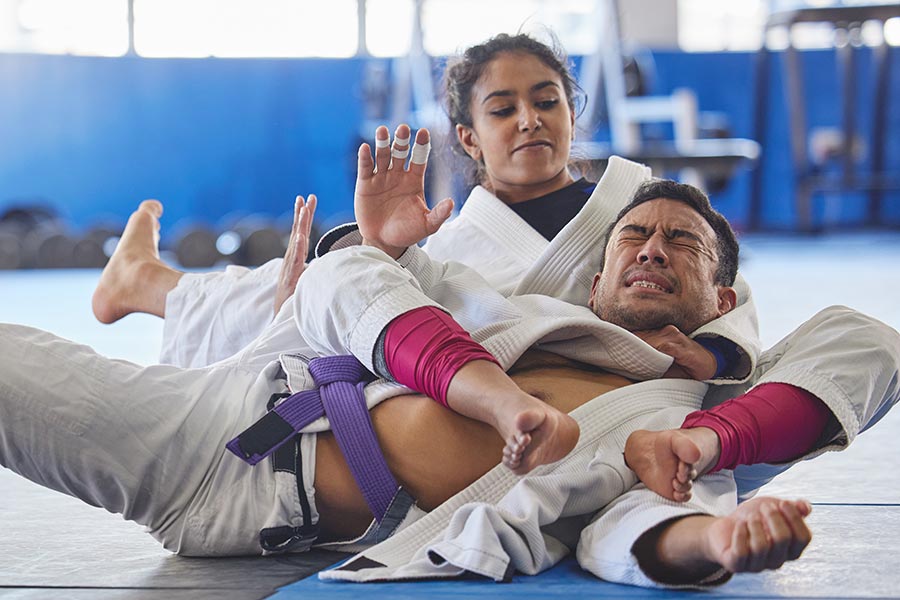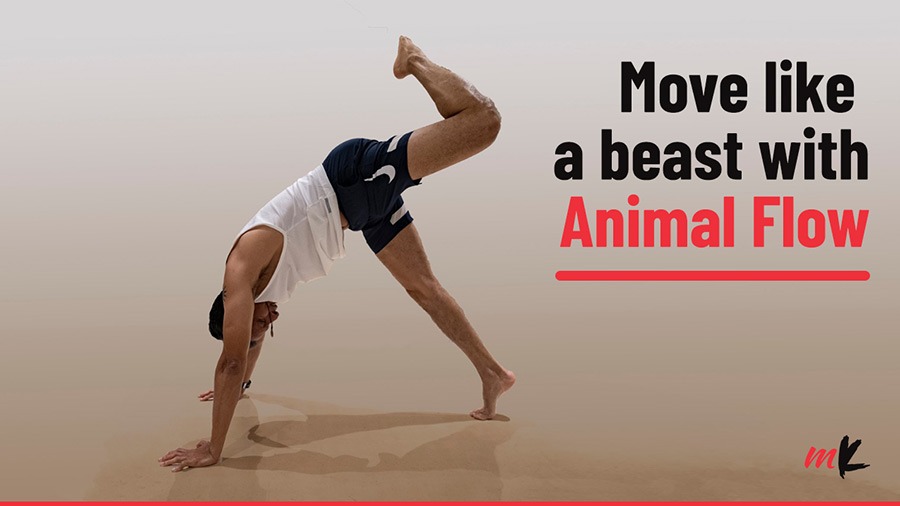“Do you even lift, bro?” For Jocabeth Ruel, the answer is a resounding “Yes!” The Texas-born, Wisconsin-raised powerlifter discovered her passion for strength training at just 15, turning after-school workouts into a lifelong pursuit. While most teens were waiting to ‘grow up,’ Jocabeth was busy growing muscles through squats, deadlifts, and bench presses — transforming her high school hobby into a powerful passion.
Now a full-time coach at Kolkata’s Chaitown Community, Jocabeth is on a mission to shatter stereotypes and help others find their own strength, both physically and mentally. She’s dedicated to lifting people as much as weights, teaching proper form and guiding her students through their fitness journeys.
My Kolkata spoke to the 24-year-old, who’s proof that muscles aren’t just for men and that real confidence comes from consistency — one deadlift at a time! Excerpts from the conversation…
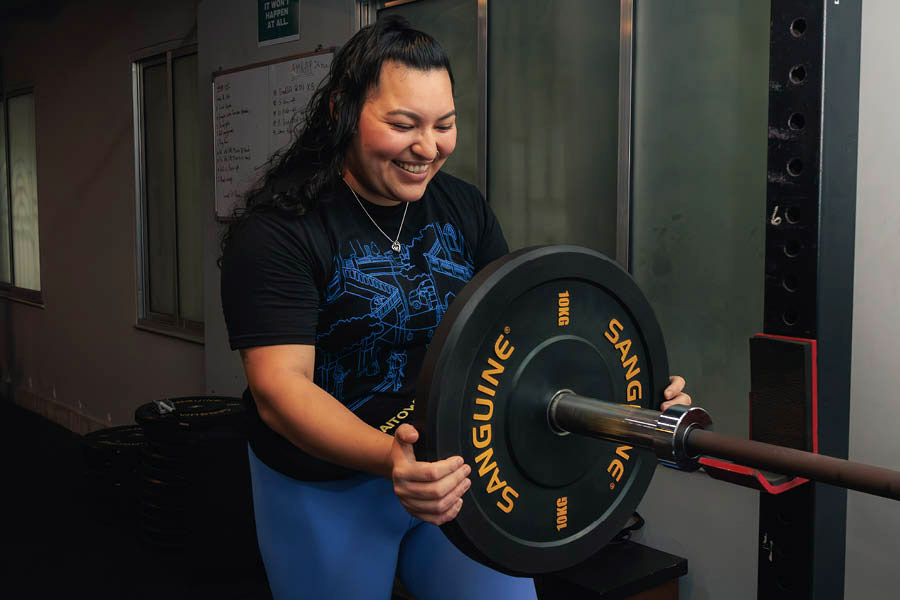
An important part of powerlifting is understanding form, according to Jacobeth
My Kolkata: Let’s start from the top. How did you get into powerlifting?
Jocabeth Ruel: I started with strength and conditioning in high school when I was 15, aiming to build muscle and endurance. I wanted something that made me feel more powerful. As a young girl, you’re told that you can do a lot of things, but only once you are 18 or older. But I didn’t want to wait till then. I wanted to feel powerful and boost my confidence right away.
Did your journey start from home?
I was born in Eagle Pass, Texas, but when I was little, we moved to Wisconsin. I attended Beaver Dam High School, where I found powerlifting. We had a club in high school and I would stay after school to work on the three main lifts: squatting, deadlift and bench press.
And then came the muscles…
I wasn’t doing powerlifting just to gain muscle, lose fat or look skinny, right? That is the typical goal people have. I didn’t want to look like that stereotypical person. I did this because I was passionate about it, and sometimes, we would even compete.
How would the competitions take place?
So, the club wasn’t funded by the school, but it was formed within the school. My coach and other members would go to the Green Bay Packers football games and work concessions. We would take a Saturday out of every month and people would donate money or give us tips. We would use the funds to cover my registration fees and other powerlifting expenses.
What did a typical day look like during the lifting sessions?
During our lifts, we’d have a meeting, followed by a full day of lifting and competing. I would wake up at 5am to catch the school bus and travel about an hour to a different school. After our weigh-ins, we would start competing, performing one rep of each lift.
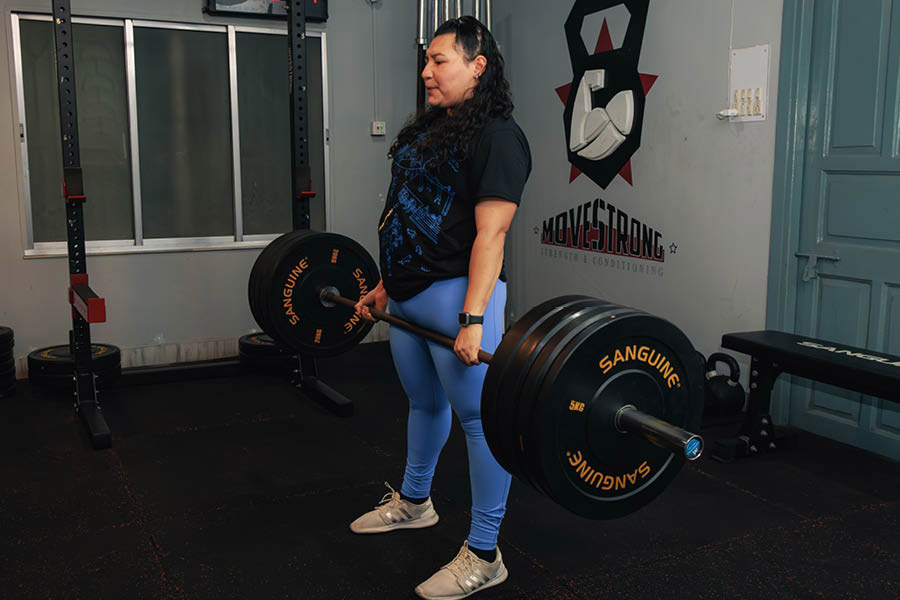
Jacobeth lifts 120kg while doing the deadlift
Would you say that powerlifting is a male-dominated sport?
Yes, it’s a male-dominated sport, but I strongly believe women can lift heavy too. Many people think lifting weights will make you look like a man, but that’s not true — it’s about toning your body, building muscle, and losing fat. Along with strength training, a healthy diet with enough protein supports muscle growth. I started lifting to challenge that misconception and prove women can lift heavy too.
How did your collaboration with Chaitown Community happen?
I first heard about Chaitown through friends Bruce Dirden and Teem. I visited in April for 10 days to check it out and quickly saw how passionate the community is about health, fitness, and creativity. They have the MoveStrong Strength and Conditioning gym, dance classes, and a music studio. I loved the community’s focus on building relationships, so I returned and became a full-time powerlifting coach.
What was your first powerlifting experience like?
My first practice was intimidating — I felt weak, starting with just 30kg. While I had some lifting experience from other sports, mastering the form was the real challenge. Proper form is crucial to avoid injury, so during that first week, I focused on squats with just the barbell, keeping the weights light to perfect my technique.
What kept you going with that intimidation lurking?
I reminded myself it was okay to start small — it was my first time, and I knew I would only get stronger. Consistency would help my muscles adapt, so I set weekly goals and aimed to meet them. If I didn’t, it was fine because I was still progressing. By the end of high school, I was lifting 180kg for deadlifts and squats and 60kg for bench press.
How do you get your students started?
I first teach them the correct form of the three main lifts — squats, deadlifts and bench presses. They start with the plastic bars we have in the gym and I show them how to squat with those. I give them a foundation on how to lift, and how to use the equipment safely so they don’t get injured. I also involve kettlebells and resistance bands in their workout.
How do you progress in powerlifting?
Powerlifting is not just about hitting your max rep. It’s about building up to that max. You start with three sets of 10 reps at about 50 per cent of your max, and then you slowly increase the weight. For example, if you start at 10kg, your next set might go up to 15kg, and the last set might be 20kg.
Powerlifting with Jocabeth
Where: Chaitown Community
Timings: Tuesday, Wednesday, Thursday, and Saturday, 5pm - 6pm
Fee: Rs 2,000 per month
For more: Click here
